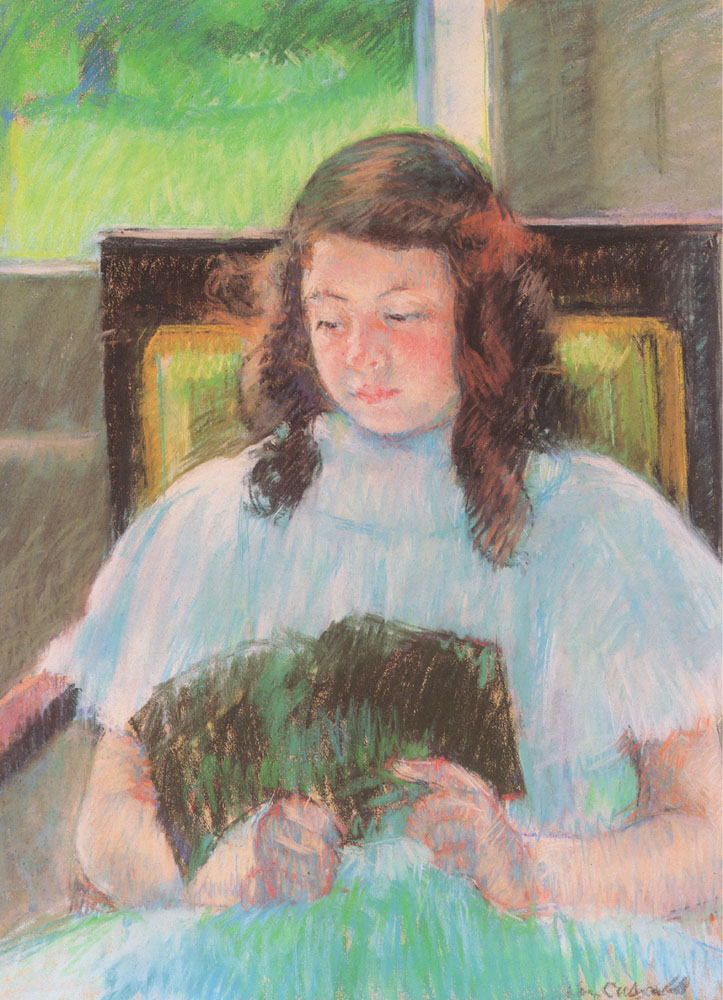The Grind City Grip
Reflections on Memphis from a Pismo summer
Back in the early weeks of the 2020 summer, with the pandemic raging and the nation reeling through the aftermath of George Floyd’s murder, I hunkered down in my apartment in Memphis and did my best to focus on a book which I had just received a contract to complete. The Realms of Oblivion, as I later titled it, would explore themes of overlooked and intentionally buried local history. The narrative’s main thread dealt with the origin story of a former-slave-powered-plantation-turned-museum where I then worked. But I also planned to weave in related general research I’d been digging up in some especially obscure corners of Memphis and Shelby County history. Though excited to move fully into the writing, I knew I’d taken on an ambitious project. Mapping out my plan, I gave myself a year and a half, possibly two years to reach the finish line — surely enough time I (naively) imagined.
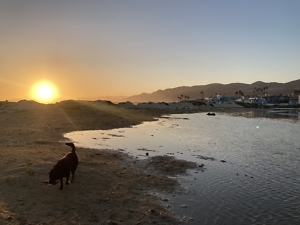
Early this past summer, after more snags, and missed deadlines, and 3 a.m. mornings than I care to recall, I finally reviewed the last page proofs and called the project a wrap. The very next morning, with a tangible weight slipping from my shoulders, I packed up my car, loaded in my dog, and started driving westbound for the small town of Pismo Beach, California. I am penning this essay now in the final week of August, having spent a full two months here in this picturesque place known for its surfing, clam chowder, and soft sandy beaches.
The circumstances that led to and enabled such an extended sojourn are many (my partner’s excellent job being at the top of the list). Fundamentally, though, I came to rest and recover from the grind of the past four years. Yet there was another, closely related reason: Having lived in Memphis for more than a decade without significant time away, I realized I needed an extended break from the Bluff City. And not only that, I needed one in an environment as far removed as possible from the sweltering valley of the Lower Mississippi River.
The Central Coast, as they call this stretch of California (“Not LA, Not The Bay” is popular local slogan), has been all I could have hoped for and more. Currently, through the open window beside my desk, I can hear crashing waves and glimpse the rolling hills of a nearly 1000-acre nature preserve that rise over the town. Just down the road are farmstands full of ridiculously delicious fruit, a famous monarch butterfly grove, and the Oceano Dunes, a state park comprising such extensive stretches of undulating sand that it feels more akin to a North African desert than coastal California. Across the country, heat waves have been shattering records this summer. Yet here, in the bubble of Pismo’s microclimate, the daily temperatures typically start at about 55 degrees before peaking around 70. On more than a few mornings, after pulling on a sweatshirt and thick hoodie, I have walked to the end of the local pier and watched humpback whales leap and crash into the roiling blue Pacific. As for my dog, I’m pretty sure he believes he’s in heaven since he’s been able to swim each day in a nearby estuary filled with more birds than he could ever dream of catching.
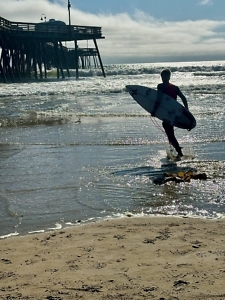
I say all this fully aware that we have not, in fact, spent the summer in heaven. (Whatever my dog may think, he’s not the one paying California prices for food and gas.) Still, there is no question that this pocket of the West Coast is a special one. And more to the point, it’s a place that has indeed felt a universe away from Memphis, Tennessee. On the most obvious level, coming here has simply been a welcome reminder that living in a place full of such abundant natural beauty, mild weather, and easy-to-access outdoor recreation does have an impact on one’s overall mental health. Related to this, though, I’ve also found myself, usually while strolling the beach at sunset and marveling at the absence of mosquitoes, working through some new feelings about Memphis itself — or more to the point, the underlying nature of my attachments to my beloved, if deeply complicated (adopted) home.
Before I go any further, I should add a little framework to this discussion. What I’m not trying to do here is a random, surface-level comparison of two places so clearly different. I’m not just talking about straightforward matters of physical landscape and environment. (A quick disclaimer: Though it’s a beauty all its own — and easy to access it often is not — incredible opportunities for outdoor play exist throughout the Memphis region; I will argue with anyone who says otherwise.) Nor am I speaking to all those very practical and measurable elements (cost of living, crime, demographics, quality of schools, public transportation, etc.) that we typically use to define a given place’s attractiveness or lack thereof.
What I’m getting at has to do with all things nonliteral and emotive — with the myriad associations and feelings we accumulate and then employ to define geographic places and our relationships to them. “Psychogeography” is a formal term that we might use to start peeling back this line of thought. But at the most basic level, I am referring to the approximate things that we mean — often, but not always in the context of discussing “home” — when we say a place “speaks” to us. Or “calls” to us after a long time away. Or “gets in our blood.”
In my case, what I’ve increasingly been asking myself this summer is this: How exactly has it come to pass that Memphis, more than any of the places I have lived, speaks to me the loudest? Why exactly has Memphis gotten in my blood? As I’ve already indicated, it’s not because I’m a native son. I grew up three hours down the interstate near Jackson, Mississippi. Moreover, after high school, I did all I could to escape the South. Between the ages of 19 and 31, I lived in no less than nine different cities across eight states. The locations I chose (Salem, Oregon; Durango, Colorado; Bastrop, Texas; and New York City, to name a few) were as far flung as they were sometimes happenstance. What lay behind all that moving, though, was a belief that I had somehow transcended being bound by my Southern roots. Like many of my fellow millennials, I also took pride in my restlessness. Regardless of how much I came to love and identify with any given place — and regardless of the relationships I formed there — I remained ready always to say my goodbyes. What mattered to me back then, for better or worse (and often it was the latter, I admit), was to keep changing, keep moving, keep keeping it fresh.
That approach changed in 2013 when I came to Memphis for graduate school. Getting into the specifics of my path since then and all the reasons I have happily stayed put would take more space than I have here. Besides, an account so literal would risk missing the point. Because as much as it’s been about good times and amazing experiences, as much as it’s centered around the work I’ve done, the new career path I’ve forged, the history I’ve researched, the lessons I’ve learned, and the book I’ve now written; and yes, as much as it’s been about the people who’ve come into my life (so many amazing people), I’ve come to suspect that my most powerful attachments to Memphis are fundamentally nonliteral.
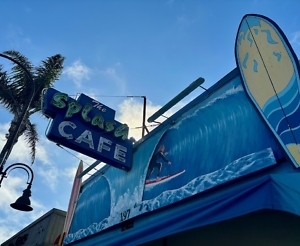
What these attachments spring from are whispers, intimations, and the traces of epiphanies that come and go with the same capriciousness as the Mid-South’s weather. They spring from the feeling of rightness with the world that sometimes envelopes me as completely as the roar of cicadas on hot summer nights. It’s about a certain sensibility that arises from moving through a city so layered, soulful, and vital to the American story that when it all hits just right it can bring tears to the eyes. It’s about the connotations that reverberate from the sound of the word itself — MEMPHISSS — as it swirls in my head (and never more poignantly than when I hear it on foreign soil). Or what happens to my sense of time the longer I stare into that boiling river eddy at the foot of Beale Street. Or the conviction I suddenly have, driving Memphis’ trash-strewn streets on some gusty Monday night in the dead of January, that there is nowhere else on Earth as beautifully forlorn.
I could go on with this kind of riffing. But at bottom, no matter how I try to map the details of my psychogeographic terrain, what it all comes down to are a few core beliefs I’ve internalized: that the stuff of being human just hangs thicker in Memphis’ air than anywhere I can imagine; that the vibrations hit harder in Memphis; that the city’s portals run deeper and its ghosts have more to say.
Of course, I’m far from alone in trying to articulate such ideas. The list of famous (and not-so-famous) names who have drawn on the well of Memphis’ inexplicable magic is as long as the river running beneath the city’s bluffs is deep and wide. But to reference just a few, we could turn to Shelby Foote and his belief that Memphis has the “true pulse of life to it.” Or Tony Allen, who hit on something bigger than basketball when he coined “All heart, grit grind.” Or Hampton Sides, who has mused on the “pleasingly off-kilter” nature of a “great big whack job of a city” that possesses an “essential otherness.” Or maybe that is getting too convoluted. Perhaps all I need to do is point to the existence of that now commonplace phrase — “Memphis as fuck” — that gets bandied about by Memphians of a certain age whenever there’s not quite any other way to describe this or that human folly that unfolds in the city. Maybe I’m wrong, but I’m not aware of any other place that’s managed to wrap its own name into a (sort of) endearing pejorative.
These kinds of things have been on my mind for quite a few years now in abstract terms. For some reason, though, being in the seemingly never-ending loveliness of a Central Coast summer has forced me to move closer toward finding the right words. There’s also something else: My Pismo Beach summer has caused me to start asking new questions about the costs of my attachments to Memphis. What if I’ve gotten a good deal wrong? What if, by allowing myself to be held in thrall by such esoteric vibrations of such a complicated place, I’ve missed too many departing boats that I should have caught? What if my muse has become my captor? At what point does it become dangerous, if not downright silly, to develop such a serious habit for probing the realms of one place’s ghosts? Moreover, what about this notion that I’ve tapped into a place with a singularly strong “true pulse of life?” How arrogant is that idea? Who am I to say that the true pulse of life doesn’t beat just as hard right here in Pismo Beach? Besides, why is that even so important to reach for? What’s wrong, after all, with embracing the voices of a place that feels lighter, easier, happier — that feels inclined, not toward imposing the weight of its own pathos and mysterious energies, but absorbing the burdens of those who move beneath its skies?
Right now, in this moment, I have no plans to try and answer these questions. Right now, I’m hungry for a bowl of clam chowder from Splash Café. Right now, with my summer almost over, I just want to head to the beach with my dog, watch the surfers, and feel the sun on my face. And who knows, maybe I’ll get lucky and spot a line of whales out there on the shimmering horizon. I don’t care what anyone says back home, that would be Pismo as fuck.
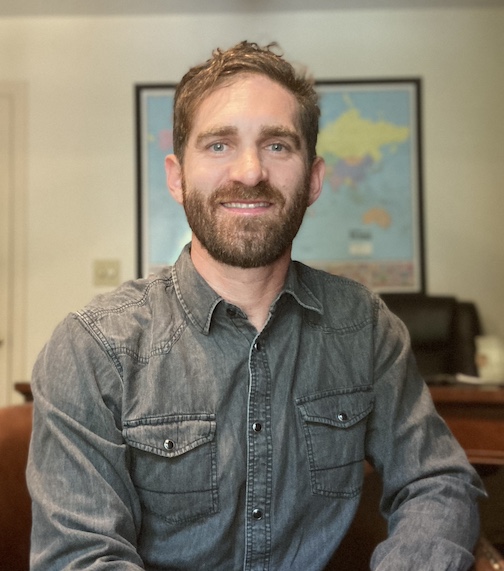
Copyright (c) 2024 by Andrew Ross. All rights reserved. Andrew Ross is a Memphis-based writer and museum professional. He has worked as the museum director for The Blues Foundation and as executive director for the Davies Manor Association. He holds an M.F.A. in creative writing from The University of Memphis, and his writing has appeared in Memphis Magazine, Delta Magazine, Texas Highways, Mississippi Sports Magazine, The Daily Beast, and various newspapers.


